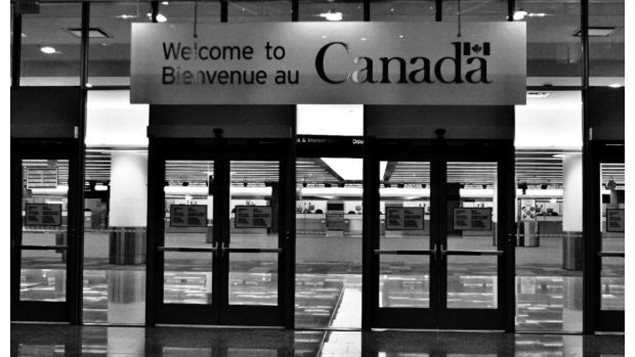LGBTQ refugees arrive from countries all over the world, seeking safety and a better life in Canada. But proving their need for refugee status, has been a challenging and sometimes humiliating process for many.
On Monday, the Immigration and Refugee Board released guidelines, for the first time, in how adjudicators must handle such cases.
“It’s revolutionary”

Prior to this, cases were handled in a similar fashion to other refugee claims, which often led to inappropriate questioning of the claimant.
In a 12-page document, the new guidelines outline terminology and appropriate language, clarification of the challenges faced by individuals with diverse sexual and gender identities, as well as the urgent need to protect sensitive information, and principles for assessing credibility and avoiding stereotyping.
“It basically puts LGBTQ people and their refugee claims at the same level as a political opinion or a religious persecution case, meaning that their sexuality is not put on trial the way it has been up until today.” according to Bashir Khan, a Winnipeg immigration lawyer who spoke with CBC News, Manitoba.
“It’s revolutionary,” Bashir told the CBC of these new guidelines.
Mike Tutthill is the Executive Director of the Rainbow Resource Centre in Winnipeg, Manitoba. He says they’ve helped people coming countries in Latin America, Africa, Asia and Eastern Europe.
The men endure violence whereas the women are forced into heterosexual marriages, often enduring violence as well, in a misguided effort to change their sexual orientation.
“The guidelines as we’re seeing them are really good, I think that we will have to see how they’re implemented and adhered to. Like any other protection for LGBT folks, the protections and the rights are important, but it really comes down to how they’re being implemented and how folks are being treated. Just because they’ve got rights in place doesn’t mean that there’s equality.”
“What’s the best thing about your LGBT identity?”
Tutthill says “oftentimes here in Canada I think that we make the assumption that if someone’s out to me then they’re out to everybody, and that’s not always the case. It’s particularly the case with newcomers.”
He explains that when refugees begin making their case they are sometimes advised not to come out to certain service-providers for fear of their safety, or not being accepted, This can lead to inconsistencies in the claimants’ story in an IRB hearing.
But Tutthill argues that it is the same for many Canadians, “Lots of us might be out to one service-provider but not out to another. And we’re making those judgements based on safety all the time, in terms of who we’re coming out to and who we’re not.”
Tutthill says when many of the refugee claimants access counselling services at the centre, it becomes evident they have chosen not to be out within their cultural communit.
“And so people have this disconnect over how to express their cultures within an LGBT community but also how to express their LGBT identities within their cultural community and for some people that’s still not safe.”
Tutthill says they will be able to judge how well the new guidelines are working as their counsellors are generally allowed to accompany the refugee claimant at the IRB hearing.
And if a claimant is refused, they do have recourse in the form of an appeal. “We did have a couple of cases that went to appeal with the United Nations and the United Nations did issue a stay on their deportation.” Tutthill says.
Mike Tutthill says the other revelation to his organization, is the response LGBTQ refugee claimants have, during counselling or programming at the centre, when asked. “What’s the best thing about your LGBT identity?” He says it’s pretty powerful, as most of them have never considered the question before.
With files from CBC Manitoba







For reasons beyond our control, and for an undetermined period of time, our comment section is now closed. However, our social networks remain open to your contributions.